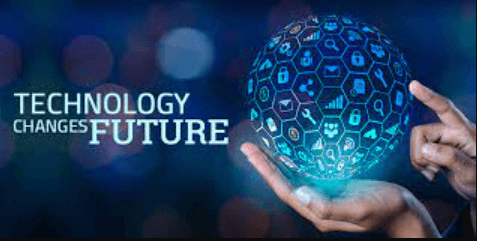Embracing the Future: The Role of Technology in Modern Life

Introduction to Technology
In the 21st century, technology has become a cornerstone of everyday life, continually reshaping the ways we interact, work, and perceive the world. From the smartphones in our pockets to the vast networks of data that span the globe, technology’s influence is omnipresent and growing. Its evolution, from simple tools and mechanical devices to complex software and interconnected digital systems, marks one of the most significant developments in human history.
The Evolution of Technology
The journey of technology is a tale of human innovation and ingenuity. Historically, each leap in technological advancement has brought about significant changes in society. The Industrial Revolution, for instance, introduced machines that transformed manufacturing, leading to urbanization and changes in employment and lifestyle. Today, the digital revolution, marked by the rise of computers, the Internet, and mobile devices, is reshaping society at an unprecedented pace. This evolution of technology reflects our innate desire to create, innovate, and improve our quality of life.
Technology in Daily Life
Our daily lives are now intricately intertwined with technology. From smart home devices that control our living environments to apps that help us manage our schedules, technology is there to make every aspect of life more manageable. In healthcare, technological advancements like telemedicine and wearable health monitors are revolutionizing patient care. In education, digital platforms and e-learning tools have opened new avenues for learning and skill development. These applications of technology demonstrate its role not just as a tool, but as an integral part of our day-to-day existence.
The Impact of Technology on Business
In the business sector, technology has become a dynamic and transformative force. It enables businesses to operate more efficiently, reach wider markets, and innovate at a faster pace. E-commerce platforms, digital marketing, and supply chain management systems are just a few examples of how technology is reshaping business practices. Moreover, the emergence of big data and analytics has given businesses unprecedented insights into customer behavior, market trends, and operational efficiency. This technological integration is essential for businesses to remain competitive and responsive in a rapidly changing world.
Social Implications of Technology
The social implications of technology are profound and multifaceted. On one hand, it has enabled global connectivity and communication, bringing people closer and fostering a more interconnected world. On the other hand, issues like digital privacy, cybersecurity, and the digital divide raise important questions about the ethical use of technology. It’s crucial to address these challenges to ensure technology contributes positively to society.
Future Trends in Technology
The future of technology holds exciting possibilities. Emerging technologies like artificial intelligence, blockchain, and quantum computing are set to redefine industries and everyday life. AI and machine learning are poised to transform sectors from healthcare to finance, offering smarter solutions and predictive analytics. Blockchain technology promises more secure and transparent transactions, while quantum computing holds the potential to solve complex problems beyond the reach of current computers. These advancements suggest a future where technology not only augments our abilities but opens new realms of possibility.
The Role of Technology in Sustainability
One of the most significant roles of technology today is in promoting sustainability. Innovations in renewable energy, smart cities, and efficient transportation are crucial in the fight against climate change. Technology is enabling us to harness solar, wind, and other renewable energy sources more effectively, reducing our dependence on fossil fuels. Smart city technologies are optimizing resource use and reducing waste, making urban living more sustainable.
Conclusion
In conclusion, technology stands as a testament to human ingenuity and a driving force of modern civilization. Its evolution from simple tools to complex digital systems has not only transformed how we live and work but has also reshaped the very fabric of society. As we navigate through the digital age, technology continues to offer limitless possibilities, from enhancing daily life to revolutionizing entire industries. The future, undoubtedly influenced by technological advancements, promises even greater innovations and challenges. However, it is imperative to approach this future with mindfulness, addressing the ethical, social, and environmental implications that come with technological progress. Embracing technology’s potential while conscientiously mitigating its risks will be key to forging a sustainable, interconnected, and thriving global community. In this journey, technology is not just a tool or a field of study; it is a catalyst for a better and more advanced world, reflecting our continuous quest for progress and improvement.
FAQs
Q: How does technology influence education and learning?
A: Technology has dramatically transformed education by enabling remote learning, providing interactive educational resources, and personalizing learning experiences. Online courses, digital textbooks, and educational apps have made learning more accessible and engaging.
Q: Can technology bridge the global digital divide?
A: Technology has the potential to bridge the digital divide by providing wider access to information and communication tools. Initiatives like expanding internet connectivity, affordable devices, and digital literacy programs are essential in making technology accessible to all.
Q: What are the ethical considerations in the use of technology?
A: Ethical considerations in technology include privacy concerns, data security, and the impact of AI on employment and society. Addressing these issues involves creating responsible guidelines and regulations to ensure technology’s ethical and beneficial use.
Q: How is technology transforming healthcare?
A: Technology is revolutionizing healthcare through telemedicine, electronic health records, wearable health devices, and AI-driven diagnostic tools. These advancements are making healthcare more accessible, efficient, and personalized.







